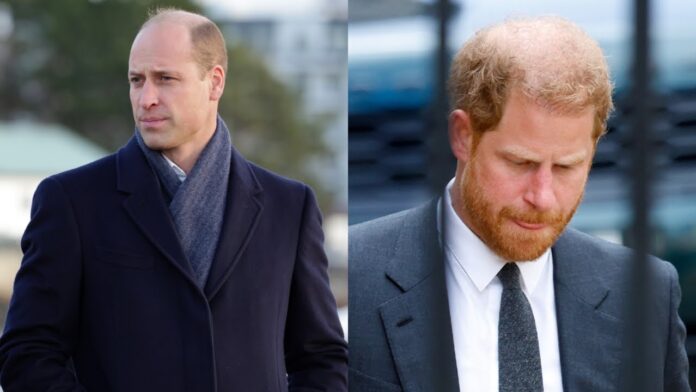As tensions persist between the royal brothers, Sabrina Cohen-hatton commends William’s compassion and commitment to ending homelessness.
In a poignant reflection on the complexities of familial relationships within the royal family, Prince William‘s adviser has lauded his “human-focused” approach, particularly in light of recent gestures towards his estranged brother, Prince Harry. Sabrina Cohen-Hatton, who serves as William’s homelessness adviser, offered insights into her own challenging past while praising the Prince of Wales for his compassionate leadership.
Cohen-Hatton’s story is one of resilience and determination. Once a homeless teenager in Newport, she faced immense difficulties, selling The Big Issue to support herself before going on to earn a PhD. Today, she finds herself in a position of influence, advising Prince William on his ambitious Homeward programme, which aims to eradicate homelessness in the UK within five years.
Embed from Getty ImagesHer admiration for William stems not only from his royal duties but also from his empathetic approach to pressing social issues. “He’s incredibly human-focused,” she remarked, highlighting how William’s past experiences and genuine concern for the welfare of others shape his initiatives. Cohen-Hatton’s perspective adds a unique layer to the conversation surrounding William’s recent outreach efforts to Harry, suggesting that his commitment to family extends beyond royal duties and into personal compassion.
The backdrop of this discussion is the ongoing tension between the two brothers, who are reportedly not on speaking terms. Despite their estrangement, William’s olive branch towards Harry suggests a desire to reconnect, albeit amidst significant challenges. The public is left pondering whether this gesture will lead to reconciliation or further complicate their relationship.
Cohen-Hatton’s upcoming documentary on William’s Homeward programme sheds light on the royal’s commitment to tackling homelessness, a cause close to his heart. She emphasised the importance of raising awareness around homelessness and the stigma often associated with it, asserting that William’s platform provides a powerful opportunity to effect change. “His position allows us to reach a much wider audience,” she stated, underscoring the potential impact of the royal’s efforts.
The Homeward programme is ambitious in its scope, aiming to bring together various stakeholders to address homelessness systematically. By focusing on prevention, support, and sustainable housing solutions, William hopes to create lasting change in a sector that has long struggled for adequate attention and resources. Cohen-Hatton’s own journey from homelessness to advisory roles exemplifies the transformative potential of such initiatives.
As discussions surrounding William and Harry’s relationship continue to unfold, Cohen-Hatton’s insights provide a refreshing perspective on the royal’s character. The human element of his approach may resonate with those who have experienced similar struggles, fostering a sense of connection and empathy. In a world often dominated by headlines and scandal, William’s focus on real-world issues and personal stories stands out.
The royal family has often been under scrutiny for its handling of internal conflicts, and the relationship between the brothers is no exception. However, as William extends his hand towards Harry, it becomes evident that he values the importance of family, even in the face of adversity. The question remains whether Harry will be receptive to this olive branch and if their relationship can mend over time.
Cohen-Hatton’s advocacy for those experiencing homelessness complements William’s own vision, creating a synergy that could amplify their efforts. As the public looks on, the combination of personal and social commitments in their work may inspire others to engage in meaningful change.
Ultimately, the narrative surrounding Prince William, Prince Harry, and their respective journeys offers a glimpse into the complexity of familial bonds. With Cohen-Hatton’s endorsement of William’s approach, there lies hope that compassion can bridge the gap between the brothers, fostering understanding and perhaps paving the way for a renewed relationship.
As the documentary on the Homeward programme nears its release, the attention it garners could serve not only to highlight homelessness but also to spotlight the evolving dynamics within the royal family. In a time of social challenges and personal strife, the emphasis on human connection could resonate deeply with many.
